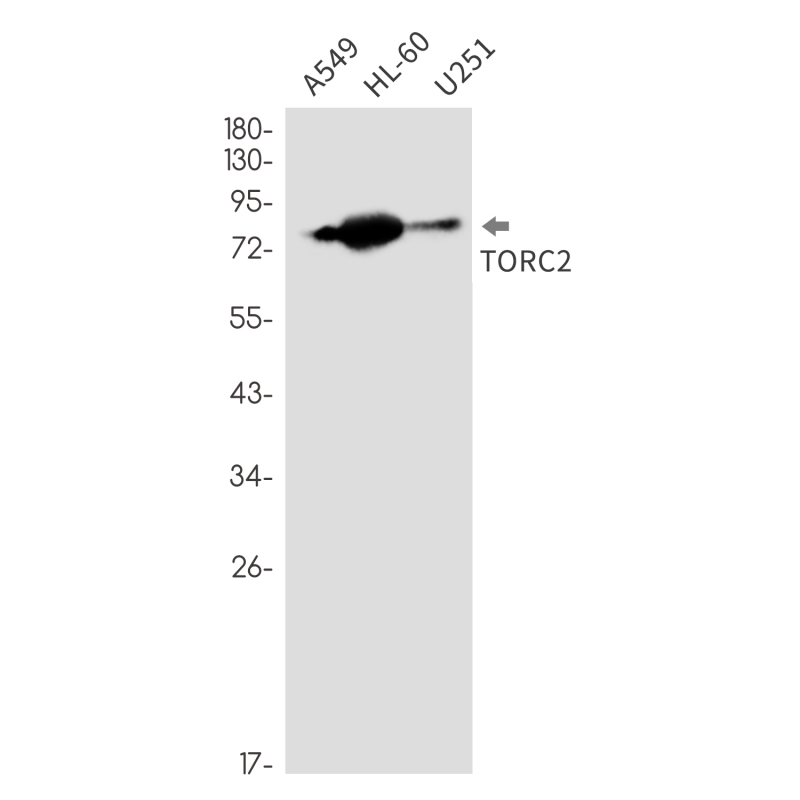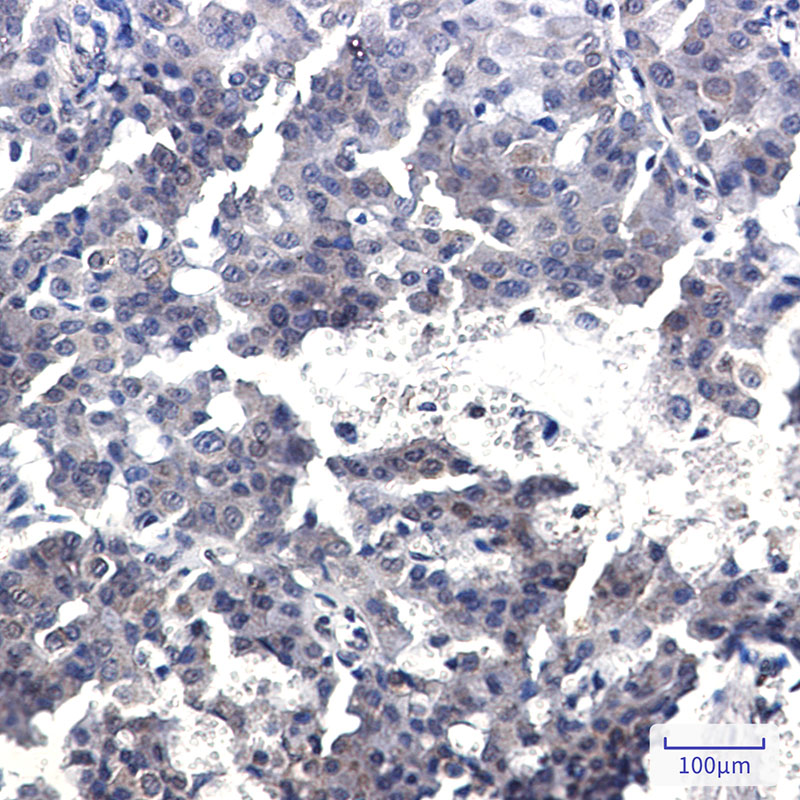

| WB | 1/500-1/1000 | Human,Mouse,Rat |
| IF | 1/20 | Human,Mouse,Rat |
| IHC | 1/50-1/100 | Human,Mouse,Rat |
| ICC | 技术咨询 | Human,Mouse,Rat |
| FCM | 咨询技术 | Human,Mouse,Rat |
| Elisa | 咨询技术 | Human,Mouse,Rat |
| Aliases | TORC2; TORC-2 |
| Entrez GeneID | 200186 |
| WB Predicted band size | Calculated MW: 73 kDa; Observed MW: 80 kDa |
| Host/Isotype | Rabbit IgG |
| Antibody Type | Primary antibody |
| Storage | Store at 4°C short term. Aliquot and store at -20°C long term. Avoid freeze/thaw cycles. |
| Species Reactivity | Human |
| Immunogen | A synthetic peptide of human TORC2 |
| Formulation | Purified antibody in TBS with 0.05% sodium azide,0.05%BSA and 50% glycerol. |
+ +
1. **"Regulation of hepatic gluconeogenesis by the transcriptional coactivator CRTC2"** - Koo SH, et al.
*摘要:该研究探讨了CRTC2在肝脏糖异生中的调控作用,使用CRTC2抗体进行免疫沉淀和Western blot分析,揭示了其通过磷酸化依赖的核转位机制调控葡萄糖代谢。*
2. **"CRTC2 contributes to adiponectin resistance and gut microbiota dysbiosis in obesity"** - Li Y, et al.
*摘要:通过免疫组化和Western blot实验,作者发现CRTC2抗体检测到其在脂肪组织中的高表达,揭示了CRTC2与肥胖中脂联素抵抗及肠道菌群紊乱的关联。*
3. **"The CREB coactivator CRTC2 controls hepatic lipid metabolism via mTORC1"** - Wang Y, et al.
*摘要:研究利用CRTC2特异性抗体验证其与mTORC1通路的相互作用,表明CRTC2通过调控脂质合成基因影响非酒精性脂肪肝的发生。*
4. **"CRTC2 promotes pancreatic cancer progression by activating the ATF4 signaling pathway"** - Sung HY, et al.
*摘要:通过免疫荧光染色和ChIP实验(使用CRTC2抗体),研究发现CRTC2通过激活ATF4促进胰腺癌细胞增殖和转移,提示其作为潜在治疗靶点。*
The CREB Regulated Transcription Coactivator 2 (CRTC2), also known as TORC2. is a critical regulator of cAMP-responsive element-binding protein (CREB)-mediated transcription. CRTC2 functions as a coactivator by binding to CREB, enhancing its ability to activate target genes involved in glucose metabolism, energy homeostasis, and cellular stress responses. It is regulated through phosphorylation-dependent nucleocytoplasmic shuttling; under fasting conditions or cAMP signaling, dephosphorylated CRTC2 translocates to the nucleus to modulate gene expression. Dysregulation of CRTC2 has been linked to metabolic disorders, including diabetes and obesity, as well as cancer progression.
Antibodies targeting CRTC2 are essential tools for studying its expression, localization, and post-translational modifications. They are widely used in techniques like Western blotting, immunohistochemistry, and immunofluorescence to investigate CRTC2 dynamics in tissues or cultured cells. Specific antibodies can distinguish between phosphorylated (inactive) and dephosphorylated (active) forms, providing insights into regulatory mechanisms. Research applications include exploring CRTC2's role in hepatic gluconeogenesis, insulin signaling, and its interplay with other transcriptional regulators. Validated CRTC2 antibodies are crucial for elucidating its pathophysiological contributions and potential therapeutic targeting.
×